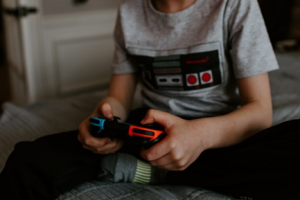A more than important goal for parents and educators, to which an educational course promoted by the Bambino Gesù paediatric hospital in Rome is dedicated.
Children of the new generations are called 'digital natives' precisely because for them the digital is not just a medium, but a part of their own learning and thinking mechanisms.
 It is, therefore, essential to educate children and young people in the 'critical and responsible' use of digital devices. This is the aim of the advice contained in a "digital health decalogue" of children and young people developed by the specialists of the Bambino Gesù Children's Hospital as part of the project "Digital school"realised in collaboration with the professionals of Almaviva, a leading Italian group in digital innovation. The aim is to promote a better awareness and understanding of the possibilities offered by digital tools and to help reduce the risks that can arise from their excessive and unfiltered use.
It is, therefore, essential to educate children and young people in the 'critical and responsible' use of digital devices. This is the aim of the advice contained in a "digital health decalogue" of children and young people developed by the specialists of the Bambino Gesù Children's Hospital as part of the project "Digital school"realised in collaboration with the professionals of Almaviva, a leading Italian group in digital innovation. The aim is to promote a better awareness and understanding of the possibilities offered by digital tools and to help reduce the risks that can arise from their excessive and unfiltered use.
The 10 'rules' for digital health
- No screens under 18 months: For children under the age of eighteen months, it is important to avoid screens and encourage learning experiences that involve the senses, such as physical play and exploration of the real world.
- An hour a day of digital discoveryBetween the ages of two and six, we give children one hour a day (preferably divided into two or more periods of 20-30 minutes each) to creatively and educationally explore digital resources, such as apps and age-appropriate content.
- Restrict, but not prohibit: During school age, we set a maximum limit of two hours per day for the use of digital devices, in order to balance time spent online with other activities, such as sports, reading or studying.
- A good night's sleepWe discourage the use of digital devices an hour before bedtime to ensure a peaceful and quality sleep for children.
- The smartphone is not a sedativeWe teach children alternative strategies for dealing with emotions, such as playing outside, reading or drawing, instead of always resorting to digital devices.
- Precious family moments: We devote meals and family time to shared conversations and activities, avoiding the use of smartphones and tablets.
- Digital time managementWe use time management functions provided by smartphone manufacturers to help children understand and regulate the time spent on devices, promoting awareness of usage.
- Educating for online safetyParents are the main role models for their children: let us be careful with the data and content we share online, showing responsibility and respect for privacy.
- Protected online: We teach the importance of using secure passwords and protecting their privacy, e.g. by setting social profiles to private mode and carefully assessing who follows them online.
- Open and conscious communicationWe maintain a constructive dialogue with our children, starting with an effort to learn about the digital world. Let us educate them in the critical and responsible use of devices.
The project, promoted by the Institute for Child and Adolescent Health with Almaviva, includes a series of educational videos available onlineThey explain how to manage tablets and smartphones in a balanced way at different stages of children's lives, what support they can provide for children with learning disorders, what the possible consequences of prolonged exposure to device screens can do to their eyesight, how social channels followed by the very young work, and what the metaverse and artificial intelligence are. The "decalogue for the digital health of children and young people" answers in a concise and agile manner many of the most common questions that parents ask themselves, suggesting a conscious and constructive approach.
